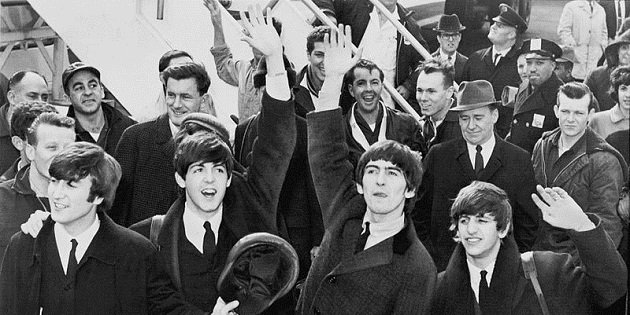Artificial intelligence identifies the musical progression of the Beatles
 Music fans and critics know that the music of the Beatles underwent a dramatic transformation in just a few years, but until now there hasn’t been a scientific way to measure the progression. That could change now that computer scientists at Lawrence Technological University have developed an artificial intelligence algorithm that can analyze and compare musical styles, enabling research into the musical progression of the Beatles.
Music fans and critics know that the music of the Beatles underwent a dramatic transformation in just a few years, but until now there hasn’t been a scientific way to measure the progression. That could change now that computer scientists at Lawrence Technological University have developed an artificial intelligence algorithm that can analyze and compare musical styles, enabling research into the musical progression of the Beatles.
Assistant Professor Lior Shamir and graduate student Joe George had previously developed audio analysis technology to study the vocal communication of whales, and they expanded the algorithm to analyze the albums of the Beatles and other well-known bands such as Queen, U2, ABBA and Tears for Fears. The study, published in the August issue of the journal Pattern Recognition Letters, demonstrates scientifically that the structure of the Beatles music changes from one album to the next.
The algorithm works by first converting each song to a spectrogram – a visual representation of the audio content. That turns an audio analysis task into an image analysis problem, which is solved by applying comprehensive algorithms that turn each music spectrogram into a set of almost 3,000 numeric descriptors reflecting visual aspects such as textures, shapes and the statistical distribution of the pixels. Pattern recognition and statistical methods are then used to detect and quantify the similarities between different pieces of music.
The study analyzed 11 songs from each of the 13 Beatles studio albums released in Great Britain, and quantified the similarities between each song and all the others in the study. The results for the individual songs were then used to compare the similarities between the albums.
The automatic placement of the albums by the algorithm was in agreement with the chronological order of the recording of each album. The algorithm determined that the songs on the first album, “Please, Please Me,” were most like the group of songs on the second album, “With the Beatles,” and least like the songs on the last album recorded, “Abbey Road.”
“Let It Be” was the last album released by the Beatles, but the algorithm correctly identified those songs as having been recorded earlier than the songs on “Abbey Road.”
“This experiment demonstrates that artificial intelligence can identify the changes and progression in musical styles by ‘listening’ to popular music albums in a completely new way,” Shamir said.




